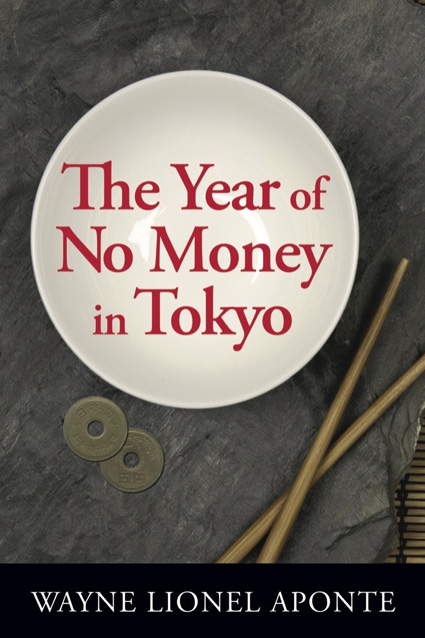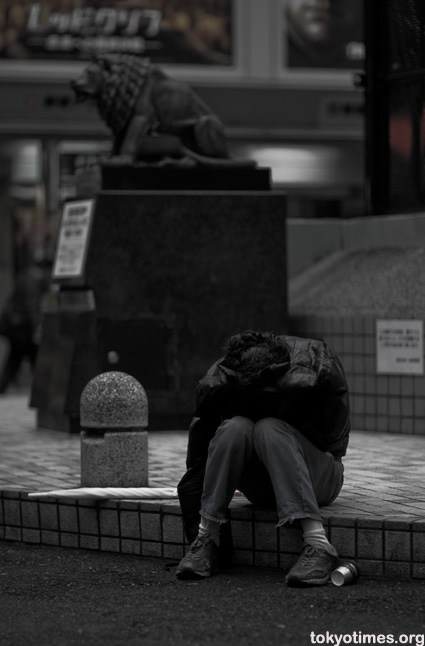There are countless books about Japan, but for my money at least, Alan Booth’s The Roads to Sata is up there with the best of them. A meander through Japan that may well be touted as a travel book but in reality is a terrifically honest and informative account of life in Japan, along with its people and places — both good and bad.
Yet with all these publications covering Japan as a whole, there’s also no shortage of books dealing with specific niches or novelties. The former at least a category that Wayne Lionel Aponte’s The Year of No Money in Tokyo arguably falls into.

And given the current economic climate, it’s a timely arrival, considering the author’s story covers his year of abject poverty and unemployment during Japan’s last financial crisis in the mid 1990’s. A period that saw him live hand-to-mouth, in cramped and uncomfortable conditions, on the handouts from his numerous girlfriends. An especially unpleasant experience that eventually bottomed out with a brief spell behind bars for brawling after one too many beers.
With this in mind, it’s not a jolly romp by any stretch of the imagination, and there’s no shortage of the writer railing against Japanese society’s injustices — real or imagined. An aspect of life in Japan that any foreign resident will be able to relate to, although even for a far from overly buoyant Brit, some of the author’s complaints about a myriad of perceived issues can get a little overwhelming.
That said, the eventual arrival of employment helps herald a new outlook, and not just one based around Japan, which gives the book some much needed balance, allowing a look at life in Tokyo that deals with both the positive and the negative. A transformation that obviously wasn’t a temporary one either, as nearly a decade and a half down the line, Aponte is still living — and working — in Tokyo. Plus, as a white fella from England, the book also offers a view of Tokyo I’m not accustomed to — one seen through the eyes of an African-American.
But going back to the beginning and The Roads to Sata, it has to be said that The Year of No Money in Tokyo doesn’t reach the dizzy heights of Booth’s wonderfully enlightening walk, although at the same time it still offers both a unique and interesting look at life lived on the breadline in Tokyo. A topic that is very rarely touched upon, let alone tackled.
Even though it’s by no means unusual.

Not by a long shot.
Al says
I have read Booth’s other book: http://traveljapanblog.com/wordpress/tag/alan-booth/ Have you read them both? If so, is one better than the other?
Lee says
Yes, I’ve read them both Al, and while Looking For The Lost is also a great read, The Roads to Sata still edges it for me.
john ball says
As usual, I love your Blogg. Thankyou, you don’t fail to have me clicking every day.A place I would love to go to, but your site will do for now!
Lee says
Thanks John, and I hope you get the chance to travel here someday.
Rob says
Thanks for the tip Lee! I just ordered a copy to read during my upcoming vacation ^^
Brian Sheehan says
I was so happy to read a reference to The Roads to Sata. I read the book years ago and I still have my dog-eared copy here by my side. It is one of my favourite books. Actually, I will start re-reading it today.
Thanks for mentioning it, Lee, you made my day. I heartily recommend Booth’s book to anyone else reading this.
Lee says
Couldn’t agree more Brian. It’s such a shame Booth died at a criminally young age. I actually found some footage of him on an old Japan/Japanese educational programme I downloaded recently, which was fascinating to say the least. And needless to say he was the affable, unassuming bloke I always imagined him to be.